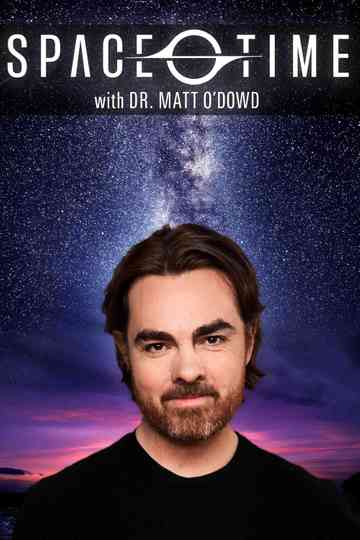Season 2018 Episodes
1. What Do Stars Sound Like?
We can now map the interiors of stars by “listening” to their harmonies as they vibrate with seismic waves.
2. Horizon Radiation
Learn about Horizon radiation and why it's essential for us to understand as we continue our journey towards the Unruh Effect and Hawking Radiation.
3. The End of the Habitable Zone
The Sun is slowly burning through its fuel. Hydrogen is fused into helium in the Sun’s core, producing energy that keeps it shining, and keeping the Earth warm and hospitable to life. But that fuel WILL run out, after which the Sun will swell into a red giant and flash-fry the Earth. But in fact that frying – well, slow-roasting – will begin much earlier. See, the Sun is getting brighter even now. This has complex, and for the most part terrible implications for life. The end of the world will come sooner than you think.
4. Kronos: Devourer Of Worlds
What happens when a star eats its planets? Find out on today’s Space Time Journal Club.
5. What is Energy?
Energy is the most powerful and useful concept in all of physics, but what exactly is it?
6. The Death of the Sun
What exactly will happen when the sun dies?
7. The Trebuchet Challenge
Do you have what it takes to calculate the awesome power of the trebuchet?
8. Should Space be Privatized?
Will the future of space exploration be guided by public or private entities? Which is better?
9. Hawking Radiation
It’s the most famous prediction of perhaps the most famous genius of our time ... Stephen Hawking's theory of Hawking Radiation
10. Scientists Have Detected the First Stars
What do the first stars in the universe, dark matter, and superior siege engines have in common?
11. The Andromeda-Milky Way Collision
The Andromeda galaxy is heading straight toward our own Milky Way. The two galaxies will inevitably collide. Will that be the very last night sky our solar system witnesses?
12. The Unruh Effect
Worried about black holes? Consider this: Every time you accelerate - you generate an event horizon behind you. The more you accelerate away from it the closer it gets. Don’t worry, it can never catch up to you, but the Unruh radiation it generates sure can.
13. Physics of Life
Our universe is prone to increasing disorder and chaos. So how did it generate the extreme complexity we see in life? Actually, the laws of physics themselves may demand it.
14. Using Stars to See Gravitational Waves
Now that gravitational waves are definitely a thing, it’s time to think about some of the crazy things we can figure out with them. In some cases we’re going to need a gravitational wave observatory - in fact, we've already built one.
15. Black Hole Swarms
It’s been conjectured that the center of the Milky Way is swarming with tens of thousands of black holes. And now we’ve actually seen them.
16. The Star at the End of Time
If we, or any conscious being is around to witness the very distant future our galaxy, what will they see? How long will life persist as the stars begin to die?
17. How Gaia Changed Astronomy Forever
The great advances in any science tend to come in sudden leaps. April 25th of 2018 marks the beginning of just such a leap for much of astronomy. In the early hours of the morning, the Gaia mission’s second data release dropped. Our understanding of our own galaxy will never be the same again.
18. Noether's Theorem and The Symmetries of Reality
Conservation laws are among the most important tools in physics. They feel as fundamental as you can get. And yet they’re wrong - or at least they’re only right sometimes. These laws are consequences of a much deeper, more fundamental principle: Noether’s theorem.
19. Why Quantum Information is Never Destroyed
If you have perfect knowledge of every single particle in the universe, can you use the laws of physics to rewind all the way back to the Big Bang? Is the entire history of the universe perfectly knowable? Or has information somehow lost along the way?
20. What Survives Inside A Black Hole?
We’ve established by now that black holes are weird. The result of absolute gravitational collapse of a massive body: a point of hypothetical infinite density surrounded by an event horizon. At that horizon time is frozen and the fabric of space itself cascades inwards at the speed of light. Nothing can travel faster than light, and so nothing can escape from below the event horizon- not matter, not light, not even information.
21. The Black Hole Information Paradox
We’ve established by now that black holes are weird. The result of absolute gravitational collapse of a massive body: a point of hypothetical infinite density surrounded by an event horizon. At that horizon time is frozen and the fabric of space itself cascades inwards at the speed of light. Nothing can travel faster than light, and so nothing can escape from below the event horizon- not matter, not light, not even information.
22. How Asteroid Mining Will Save Earth
The days of oil may be numbered, but there’s another natural resource that’s never been touched, Asteroids.
23. Will A New Neutrino Change The Standard Model?
Since the discovery of the Higgs boson, physicists have searched and searched for any hint of new particles. That search has been fruitless. Until, perhaps, now. Today on Space Time Journal Club we’ll look at a paper that reports a compelling hint of a new particle outside the standard model: the sterile neutrino.
24. Quantum Invariance & The Origin of The Standard Model
In simple terms a gauge theory is one that has mathematical parameters, or “degrees of freedom” that can be changed without affecting the predictions of the theory.
25. The Misunderstood Nature of Entropy
Entropy and the second law of thermodynamics has been credited with defining the arrow of time.
26. Reversing Entropy with Maxwell's Demon
Can a demon defeat the 2nd Law of Thermodynamics?
27. How Close To The Sun Can Humanity Get?
28. Quantum Theory's Most Incredible Prediction
Let’s talk about the best evidence we have that the theories of quantum physics truly represent the underlying workings of reality.
29. How Will the Universe End?
We live in an unusual age – the age when the stars still shine. We should count ourselves lucky – nearly all of future history will be dark. But events will still unfold in that long, cooling darkness, and civilizations may endure. So how will the universe and its far-future denizens spend eternity?
30. Is There Life on Mars?
There is no greater hero in our search for life on mars than a little robot named Opportunity.
31. The Black Hole Entropy Enigma
Black Holes should have no entropy, but they in fact hold most of the entropy in the universe. Let’s figure this out.
32. How Much Information is in the Universe?
There’s quite a bit of stuff in the universe, to put it mildly.
33. Quantum Gravity and the Hardest Problem in Physics
Between them, general relativity and quantum mechanics seem to describe all of observable reality.
34. How to Detect Extra Dimensions
Physics seems to be telling us that it’s possible to simulate the entire universe on a computer smaller than the universe.
35. Computing a Universe Simulation
Physics seems to be telling us that it’s possible to simulate the entire universe on a computer smaller than the universe.
36. What are the Strings in String Theory?
Why strings? What are they made of? How did physicists even come up with this bizarre idea? And what’s all this nonsense of extra dimensions?
37. Will We Ever Find Alien Life?
The silence of the galaxy and the resulting Fermi Paradox has perplexed us for nearly 50 years. But our most recent surveys of the Milky Way finally allow us to draw scientific conclusions about the depressingly persistent absence of aliens.
38. Are Virtual Particles A New Layer of Reality?
Let me tell you a story about virtual particles. It may or may not be true.
39. Why String Theory is Right
Some see string theory as the one great hope for a theory of everything – that it will unite quantum mechanics and gravity and so unify all of physics into one glorious theory.
40. Supersymmetric Particle Found?
With the large hadron collider running out of places to look for clues to a deeper theory of physics, we need a bigger particle accelerator. We have one - the galaxy.
41. 'Oumuamua Is Not Alien
To repeat the space time maxim: it’s never aliens … until it is. So let’s talk about ‘oumuamua.
42. Did Life on Earth Come from Space?
How did life on Earth get started? Did life on Earth originate on another planet? Either Mars, or in a distant solar system? Could Earth life have spread to have seeded life elsewhere? Let’s see what modern science has to say about the plausibility of panspermia.
43. Quantum Physics in a Mirror Universe
When you look in mirror, and see what you think is a perfect reflection. You might be looking at universe whose laws are fundamentally different.
44. Why String Theory is Wrong
There’s this idea that beauty is a powerful guide to truth in the mathematics of physical theory. String theory is certainly beautiful in the eyes of many physicists. Beautiful enough to pursue even if it’s wrong?

























